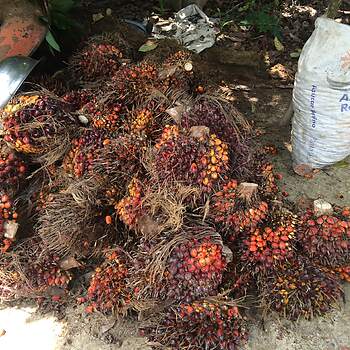During this period a number of organizations such as IDH (Sustainable Trade Initiative), Solidaridad, SNV and programs focused on commodity specific value chain development. As an agribusiness incubator, the 2SCALE program placed emphasis on improving productivity at the farmer level, especially small scale farmers, improving processing and marketing through SMEs and reaching Base of the Pyramid consumers. IDH focused more on sourcing strategies of large western multinational companies in global value chains and the imperatives of responsible business practices and trade relations that would benefit stakeholders in developing countries and have a positive impact on social and environmental sustainability. Solidaridad supported round tables focusing on specific commodities with a focus on sustainable value chain development and was more geared towards producers, farmer organizations and SMEs in developing countries. At country and regional levels programs were launched to support specific value chains such as the honey value chain in Ethiopia (SNV) and horticultural value chains in Ghana. Most of these programs were public-private partnerships. Some subsidy instruments focusing on public private partnerships (PPP’s) such as the Facility for Sustainable Entrepreneurship and Food Security (FDOV) were managed by the Netherlands Enterprise Agency RVO. A public private partnership resource centre at Erasmus University provided guidance for the further development of policies and practices to promote PPP’s for food security.
The seed sector became an important focal point for Dutch international agricultural development and food security interventions [1] , initially through the integrated seed sector development approach (ISSD) and later through SeedNL[2]. The Netherlands as a world leader in seed and planting material development contributes to building an effective seed sector by bringing together actors from government, the private sector, civil society organizations and research institutions. The focus is mainly on horticulture and seed potatoes. SeedNL is active in a large number of countries and also supports input suppliers and seed regulation measures.
Another area of development was the introduction of landscape approaches a.o. through the International Union for Conservation of Nature (IUCN) starting based on an ecosystem perspective and through the Sustainable Trade Initiative (IDH) based on addressing environmental threats to production and sourcing in areas where multinational companies like Unilever source commodities (e.g. tea plantations in Kenya). Landscape approaches are actively promoted by the WUR-CDI[3] and the Dutch Environmental Assessment Agency (within PBL). The EAA is increasingly active in developing countries and regions working from the perspective of sustainable development (SDGs)[4].
[1] See https://www.wur.nl/en/research-results/research-institutes/centre-for-development-innovation/show-cdi/connecting-partners-across-africa-to-guide-seed-sector-transformation.htm
[2] https://www.seednl.nl/who-we-are and https://zoek.officielebekendmakingen.nl/stcrt-2020-13115.html (covenant establishing SeedNL)
[3] https://weblog.wur.eu/spotlight/think-landscape/
[4] A separate time line on landscape approaches is under preparation at NICC
